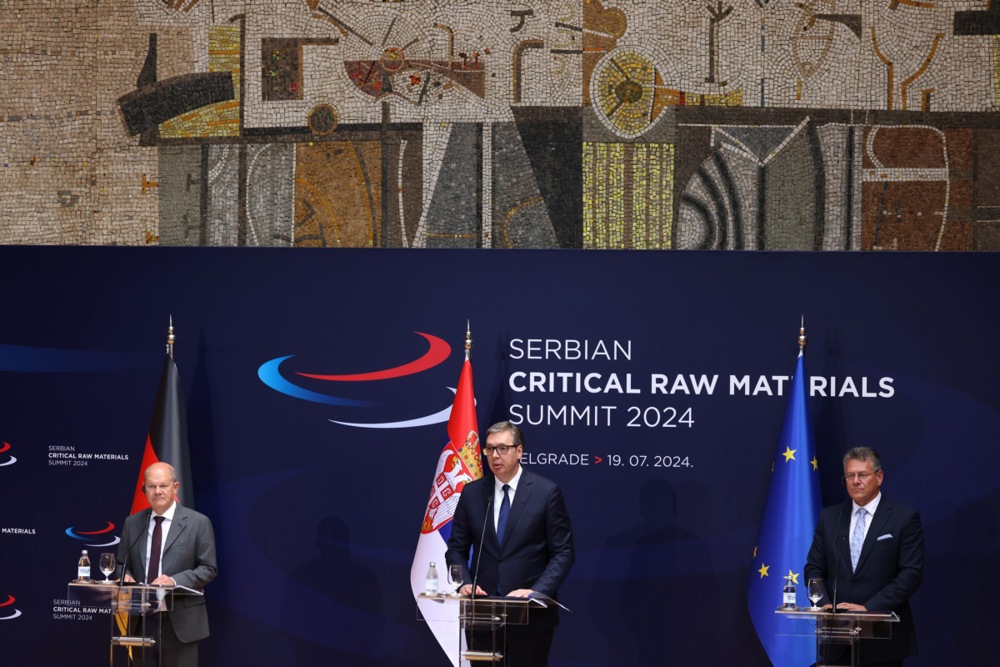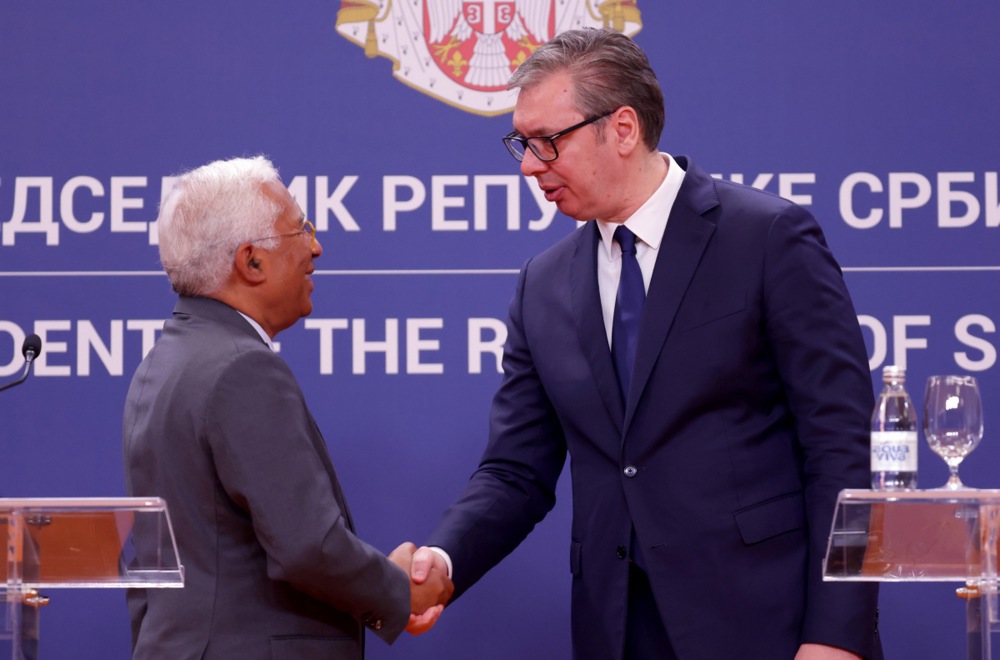Mining giant Rio Tinto has quietly placed its €2.95 billion Jadar lithium project in western Serbia on indefinite “care and maintenance”.
That effectively freezes one of Europe’s most strategically important critical raw materials ventures.
The suspension follows years of fierce local opposition
The decision, confirmed in an internal memo first reported by Bloomberg on November 13 and widely covered afterwards by Serbian media, cites protracted permitting delays, regulatory uncertainty and a company-wide cost-cutting drive under new CEO Simon Trott as the reason.
Discovered in 2004, the Jadar deposit near Loznica in western Serbia contains an estimated 135 million tonnes of ore and is one of the largest undeveloped lithium resources in Europe.
Once operational, it could supply up to 90 per cent of the European Union’s current lithium demand for electric-vehicle batteries at a time when Brussels is desperate to reduce reliance on Chinese refining.
In June 2025, the European Commission formally designated Jadar a “strategic project” under the Critical Raw Materials Act, fast-tracking permitting and unlocking potential EU funding.
Rio Tinto stressed it is not abandoning the site outright – it retains full ownership and mineral rights – but resources are being redirected to lower-risk, faster-moving assets, notably the Rincon project in Argentina.
The suspension follows years of fierce local opposition.
Farmers and environmentalists in the fertile Jadar Valley have blocked roads and collected more than 60,000 protest signatures, citing risks of groundwater contamination, soil degradation and the displacement of communities.
Mass protests in 2021 forced the President Aleksandar Vučić-led government to revoke Rio Tinto’s licences in 2022. Despite that, two years later the Constitutional Court ruled the cancellation unconstitutional, paving the way for reinstatement of spatial plans in July 2024.
Belgrade had repeatedly framed the mine as a cornerstone of economic development and a bargaining chip in EU accession talks, with Vučić claiming it could generate billions in exports and thousands of jobs.
The timing is awkward for Brussels as EU’s push for raw-material autonomy has suffered repeated setbacks – from community resistance in Portugal’s Barroso region to permitting bottlenecks in Sweden and Spain.
Losing Jadar, even temporarily, underscores the widening gap between Europe’s green-industrial ambitions and the social and environmental realities of extracting the metals needed for the energy transition.
In a reply to Brussels Signal, a spokesperson stressed that “The Commission remains in contact with Rio Tinto to monitor the Jadar project, which was designated a Strategic Project under the CRMA in June 2025.”
They added that “The Commission signed with Serbia a strategic partnership on sustainable raw materials, battery value chains and electric vehicles on 19 July 2025“, and that “both parties are working toward the implementation of the partnership.”
Under the Critical Raw Materials Act, the project promoter must notify the Commission of changes to the Strategic project affecting its fulfilment of the assessment criteria for the designation of strategic project.
Serbian economic researcher and activist Alexandar Matković told Brussels Signal that he was very sceptical about the announced pause.
“The vast majority of Serbian locals and activists don’t believe a dime when it comes to Rio Tinto halting large-scale projects. And why would they? After all, the same thing happened in 2022, when the government decided to ‘cancel’ the mine ahead of elections, only to reinstate the Jadar-project two years later.
“Now, with Vučić under pressure to hold parliamentary elections due to the student movement that’s been blockading various institutions for more than a year, for the locals and activists this seems like a case of history repeating itself: They believe Rio Tinto will pause the project only to reinstate it after the elections.
“Vučić is slowly losing popularity after the canopy collapse of Novi Sad, which is linked to corruption in his circles,” Matković said.
He was referring to an accident on November 1, 2024, at the Novi Sad train station, where a roof collapse killed 15 people and injured 30 others, sparking an ongoing series of protests against the government.
Matković stressed that Rio Tinto is “a highly unpopular company in Serbia, probably the most unpopular one, and it may have trouble if Vučić loses”.
“So, for both Vučić and the company, this seems like a smart choice: Wait out, and get back into the game once the danger has passed.”
According to Matković, economic instability might also have played a role.
“The crisis of the German car-industry will leave lithium suppliers seeking alternatives in case certain car manufacturers downsize their demand for lithium, while the US sanctions on Serbia’s main oil and gas company (Gazprom Neft, a Russian-owned company dealing with the production, distribution of oil and gas, as well as refining) are all factors to consider,” he said.
“Ultimately, Serbia has a creeping debt crisis due to large-scale projects like the international EXPO fair in Belgrade, also linked to corruption,” he alleged.
“At this moment, no foreign investor could be advised to continue a business-as-usual approach.
“In case of further US sanctions to Serbia’s Central Bank, the value of the dinar [official Serbian currency] might collapse as well, favouring exporters, but also making foreign debts more hard to repay, and that will put enormous pressure on the State in which foreign debt has been largely denominated or indexed in euros.
“Not to mention the violence on the streets, with police [allegedly] kidnapping people and the preparedness of the vast majority of Serbians to resist Rio Tinto’s project in particular, should the machines cross the borders.
“It is not a safe environment at this moment and Rio Tinto knows this. As do the locals. While the pausing of the project is a step forward, their stance is still one of resistance,” Matković concluded.
Serbian economic researcher and activist Alexandar Matković has raised serious concerns about a widely praised lithium mining project in his home country. https://t.co/xSTBNab6Ba
— Brussels Signal (@brusselssignal) May 9, 2025





